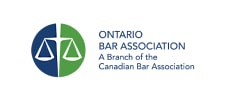Common Law Sponsorship Lawyer
- Specializing in All Types of Immigration Cases
- Over 20 Years of Experience
- Excellent Success Rate
COMMON LAW PARTNER SPONSORSHIP LAWYER
Contents:
Common Law Sponsorship
Canadian citizens or permanent residents may sponsor their foreign common-law partners for permanent residence in Canada. This will allow the foreign partner to live, work and study in Canada and to access social services. After living in Canada for three out of five years as a permanent resident, the partner can then apply for Canadian citizenship.
What Is A Common-Law Relationship?
A common-law relationship means an opposite or same-sex couple that has cohabited together in a conjugal or marriage-like relationship for a period of at least one year. The cohabitation must be continuous and not intermittent cohabitation adding to one year, excluding any brief breaks of cohabitation due to work and family obligations.
Fill out our FREE Family Sponsorship Assessment form to see if you are qualified to sponsor your spouse or common-law partner to Canada.
Requirements To Sponsor
To be eligible to sponsor, the Canadian partner must meet the following criteria:
- a Canadian citizen or permanent resident
- 18 years of age
- reside in Canada
- not have been themselves sponsored as a spouse/common-law partner within the last 5 years
- if they previously sponsored a spouse or partner then three years must have passed since this person became a permanent resident
- be willing to sign a 3-year undertaking to be financially responsible for your common-law partner once they arrive in Canada
- not have already applied to sponsor your current spouse, partner or child and a decision on your application has not been made yet
- not be subject to a removal order
- not be detained in any prison
- not have been convicted of any crime of a sexual nature
- not have been convicted of a crime involving the use of violence punishable by more than 10 years of imprisonment
- not have been convicted of a crime involving bodily harm to a relative or partner
- not be in default of any previous sponsorship undertaking
- not in default of an immigration loan
- not be in default of any support payments ordered by a court
- not be an undischarged bankrupt
- not be in receipt of social assistance other than for a disability
Exception to the Criminal Convictions Provisions
The criminal conviction restrictions to sponsoring does not apply if the sponsor has been pardoned or acquitted, or at least five years has elapsed since the completion of the sentence imposed for the criminal offence.
Sponsor’s Residency Requirements
If the sponsor lives with his or her common-law partner in Canada, then they must cohabit together while their sponsorship application is processing. If the sponsor is a citizen and lives outside of Canada with his or her common-law partner, the sponsor must provide proof that he or she intends to return to Canada once the sponsored partner is granted permanent residency. If the sponsor is a permanent resident, then he or she must reside in Canada in order to sponsor his or her common-law partner.
Minimum Income Requirements
There is no minimum income requirement to sponsor your common-law partner. However, sponsors and/or sponsored partners must show that they have sufficient income and/or assets to support the sponsored partner once he or she is granted permanent residency. If the immigration authorities believe that the sponsor and sponsored partner have insufficient income and/or assets to support the sponsored partner, then it may lead to the application being refused on this basis. It should be noted that a sponsor is financially responsible for the sponsored common-law partner once they arrive in Canada.
Requirements To Qualify As A Common-Law Partner
To sponsor your common-law partner, the foreign partner must meet the following criteria
- must be 18 years of age or older
- must be in a genuine relationship
- must not be criminally inadmissible
- Common-law relationship must be genuine
The sponsor and sponsored partner must prove that their relationship is genuine and that it was not entered into for the primary purpose of acquiring status in Canada. If the immigration authorities believe that the relationship is not genuine or that it was primarily entered into for the primary purpose of acquiring status in Canada, then they will refuse the sponsorship application. The immigration authorities will asses the relationship on various factors, including the duration and quality of the relationship leading up to and during the partnership, cultural factors, and the overall compatibility of the partners.
Bring Your Common-Law Partner to Canada
Here’s how we can help you:
As your legal representatives, we will assist you in navigating through the complex immigration rules and procedures from the beginning to the end. We will assist you in the following manner:- Formulate a strategy based on your particular circumstances as to the place, timing and specific contents of the sponsorship application
- Collect and review supporting documents that sufficiently establish your common-law relationship
- Provide and complete all necessary immigration forms
- Guide you to obtain necessary supporting documents like police certificates and medical examinations
- Provide legal submissions to support your common-law relationship
- File the application for you at the relevant immigration office
- Manage all communications with the immigration authorities
- Respond to any concerns or fairness letters issued the immigration authorities
- Prepare you and your common-law partner for any requested interview
- Provide you with the final result of your application including the permanent resident visa once issued

The Immigration Law Firm of Matthew Jeffery has over 20 years of experience and specializes in handling spousal or partner sponsorships with high success rates. To see if you qualify for spousal or partner sponsorship, fill out our FREE Sponsorship Assessment form.
Sponsored Common-Law Partner Must Not Be Criminally Inadmissible
Any criminal conviction that is or could be the equivalent of an indictable offence in Canada will in many cases permanently render a foreign national criminally inadmissible to Canada, meaning that they cannot be sponsored or otherwise enter Canada. This will apply to just about any criminal offence, including relatively minor offences such as impaired driving and shoplifting. A foreign spouse with a criminal record can overcome this inadmissibility by obtaining a pardon or the foreign equivalent of a pardon suspending their criminal record. Another way to overcome the inadmissibility is to make an immigration application for rehabilitation if five years has elapsed since the day that the criminal sentence given was completed. If more than ten years have elapsed since a single, minor conviction, then the foreign national may in some cases be deemed rehabilitated.
Proving Your Common-Law Relationship
You will need to provide evidence of your common-law relationship and cohabitation, including but not limited to,
- joint ownership of residential property
- a joint rental or lease agreement,
- joint utility accounts such as an electricity bill, gas bill, internet bill, etc.
- government IDs showing your shared address
- joint account statements showing shared address such as cellphone bills, bank statements, credit card statements, etc.
- insurance policies showing each other as a beneficiary such as employment benefits
- proof of communications such as text messages, emails, social media conversations, etc.
- proof of visits such as passport stamps, airline itineraries, boarding passes, etc.
- proof of financial support and/or shared expenses
- pictures of you and your partner as a couple and with friends and family
- proof that your relationship is recognized by each other’s friends and families such as support letters
Dependent Children
If the sponsored partner has a dependent child or children, then a sponsor may sponsor the child or children as well. A dependent child is a child who is younger than 22 years of age and unmarried / not in a common-law relationship. Non-accompanying children must also be added to the application and be examined, including attending a medical examination, in case the sponsored partner wishes to sponsor them later after obtaining permanent residency. Additional documents are required to sponsor dependent children, as well as obtaining the non-accompanying parent’s consent if the child is younger than 18 years of age.
It should be noted that if one of the parents of the dependent child is a Canadian citizen, or if that child was born in Canada, then that child may automatically be considered a Canadian citizen and therefore need not be sponsored. However, a separate application to register them as a Canadian citizen will be required.
Your Obligations As A Sponsor
Sponsors must sign an undertaking which is a binding promise to offer financial support to cater for the basic needs of the sponsored spouse or partner and their dependent children. As a sponsor you must offer your support for the length of the undertaking period even if your situation changes. This undertaking shall not be canceled even if the sponsor becomes a Canadian citizen, is divorced, separated or the relationship breaks down, or if you have financial problems. Basic needs include:
- Food, clothing, shelter and other necessities of daily living
- Health needs that are not covered by public health services such as dental care and eye care
Take note that if a person you sponsor receives social assistance during the period in which you are legally responsible for them, you will be required to pay for what they received during that period. Additionally, you will be barred from ever sponsoring someone else until you pay this amount.
May I cancel My Undertaking After It’s Been Approved?
Once you submit your spousal or common law partner sponsorship application, you may have second thoughts and change your mind before a decision is made. If this happens, you must write a letter to the IRCC by submitting a web form online requesting a withdrawal of the undertaking. An undertaking can only be canceled if the request is approved by the immigration authorities.
What Is Length Of Undertaking?
The sponsor’s obligations start as soon as the undertaking is in effect. If you are sponsoring a spouse, common-law or conjugal partner, the length of undertaking is 3 years from the day the sponsored person becomes a permanent resident.
Suspension Of Processing
If you are involved in any of the situations listed below, IRCC will not process your sponsorship application until a final decision related to the situation is made. These situations include:
- If your citizenship is in the process of being revoked
- If you have a removal order
- If you have not met residency requirements
- If you have been declared inadmissible to Canada due to security, human or international rights violation or serious criminality
- If you’ve been charged with an offence that’s punishable by a maximum prison term of ten years
What Happens If you Don’t Meet The Sponsorship Requirements
If you choose to withdraw your sponsorship application, you will get a refund for the permanent resident visa processing fees as well as any right of permanent resident fees that you may have paid. The sponsored person’s permanent residence application will also be withdrawn so no decision will be made and you will not have a right of appeal.
However, you can still reapply at a later date once you fix the issue that may have made you ineligible to be a sponsor. Keep in mind that if you don’t qualify as a sponsor but still go ahead with the application, it is likely to be refused but you will have a right to appeal.
Types of Applications
In-Canada Applications
A sponsor and sponsored partner living together in Canada can submit an inland sponsorship application which will be processed within Canada. If the sponsored partner has legal status in Canada, such as a worker, student or visitor, then he or she may apply for an open work permit which will allow him or her to work legally in Canada while the sponsorship application is processing. If the sponsored partner is in Canada and out of status or subject to a removal order, he or she may still be sponsored. However, they will not be able to immediately obtain a work permit, but must wait for first-stage approval of the application before applying for a work permit.
A sponsor and sponsored partner who reside outside of Canada may travel to Canada for the purpose of submitting an inland application provided that the sponsored partner has obtained a temporary visa or is from a visa-exempt country. Obtaining a temporary visa may be difficult as the immigration authorities are generally resistant to granting temporary admission to partners of Canadians since they do not consider them to be genuine visitors, but rather as foreigners who are likely to remain in Canada permanently. In light of this difficulty, where the foreign partner is residing outside of Canada and does not have a temporary resident visa of the right to enter Canada visa-free, it may be preferable to submit an Outside-Canada application as detailed below.
It should be noted that sponsors and sponsored partners living together in Canada must remain living together while their sponsorship application is processing. This means that the sponsor and sponsored partner must physically live together in the same premises for the duration of the sponsorship application. If the immigration authorities believe that the sponsor and the sponsored partner are not cohabitating, it may lead to the sponsorship application being refused.
Outside-Canada Applications
If the sponsored partner or both the sponsor and the sponsored partner live outside of Canada then they may submit an Outside-Canada application which means that the sponsorship application will be processed by a Canadian visa office abroad, usually located in the Canadian embassy or consulate in or near the country where the sponsored partner resides.
Once an application is submitted, the sponsored partner may travel to Canada to visit or otherwise remain on a temporary basis, provided that they are from a visa-exempt country or have obtained a temporary visa. However, obtaining a temporary visa may prove difficult as the immigration authorities are resistant to admit common-law partners of Canadians as they do not believe them to be genuine visitors, since their usual intention is to remain in Canada permanently. If a sponsored partner wishes to apply for a temporary visa, then he or she will have to provide proof of their intention to return to their country of origin. Sponsored partners from visa-exempt countries are not required to obtain a temporary visa and are free to travel to Canada as they wish up to a maximum of 6 months.
Sponsors and sponsored partners residing in Canada may request that their sponsorship application be processed under the outside of Canada category. This option may be useful if the sponsor and sponsored partner plan to travel together extensively outside of Canada while their application is processing and therefore cohabiting in Canada for the duration of the sponsorship may prove to be difficult.
It should be noted that permanent residents must live in Canada while the sponsorship application is processing, but that Canadian citizens can live abroad while sponsoring, provided that they can prove an intention to return to Canada at the end of the process.
It should be further noted that an added advantage of the outside-Canada common-law partner process is that it provides for an appeal to the Immigration Appeal Division if the application is denied. In comparison, an application made under the in-Canada category does not have this right of appeal, although there is the option of applying for judicial review at the Federal Court. As the appeal to the Immigration Appeal Division is superior to a Federal Court judicial review, those applicants who have concerns that their application may be refused for some reason may prefer to apply under the outside Canada process.



















